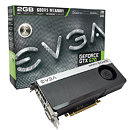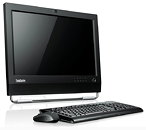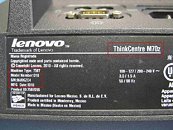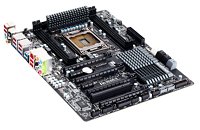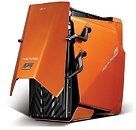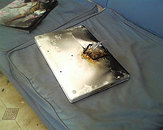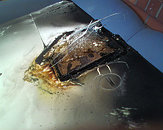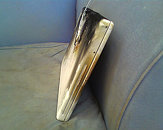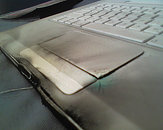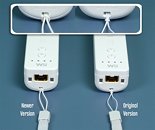Last week, a Taiwanese overclocker putting his OC workbench through an relatively laxed OC stress test saw its Gigabyte X79 UD3 motherboard go bust. Its CPU VRM couldn't cope with the stress, and blew a MOSFET. At the time, people responding to his video condoled him for his bad luck. It appears now that his wasn't a one-off case of "bad-egg". Gigabyte, in its latest press release on its Chinese website, noted the issue. Apparently it received several such complaints from overclockers where even moderate voltage-assisted CPU OC fried its VRM. The issue was found to be widespread, among three of its main socket LGA2011 products, the GA-X79-UD3, GA-X79-UD5, and G1.Assassin 2.
Apparently, the issue is caused by a cocktail of bad firmware to complement the board's PWM circuitry, and bad quality PWM components. As an immediate remedy, Gigabyte issued a BIOS update for the affected products. This BIOS, however, will cripple the board's overclocking abilities. The new BIOS will throttle CPU when subjected to extreme stress, to save the VRM. The BIOS remedy is only for those who opt to keep their boards, or don't subject the board to extreme tuning. The other remedy, is to return the board to Gigabyte, for a free replacement when the "right" boards are available. Gigabyte also announced a general recall of the GA-X79-UD3, GA-X79-UD5, and G1.Assassin 2, from the market. A video of the "unlucky" (not anymore) overclocker's day going bad, can be watched
here.
Update (29/12): Gigabyte's German office wrote to us and explained that on their end they find the problem to be because of bad firmware, and not bad component quality; and that unlike Gigabyte Taiwan, they are not recalling products or soliciting replacements, but asking users to update their BIOS to the latest available. Gigabyte Germany set up a hotline for German customers, that's 040-253304-55.

